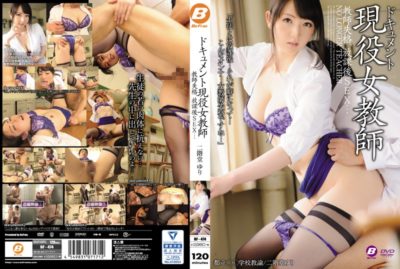BF-474 Document Active Woman Teacher Teacher Disqualification, After School SEX … Yuri Nikaido
The landscape of educational integrity and professional conduct is continually scrutinized to ensure a safe and respectful environment for students and staff alike. Recently, a case involving the document labeled "BF-474," which pertains to an active female teacher, has garnered attention due to allegations of misconduct after school hours. The case centers around Yuri Nikaido, a teacher whose professional reputation has been affected by claims of inappropriate behavior leading to disqualification from her teaching role. This article explores the details surrounding the BF-474 document, the allegations against Nikaido, and the broader implications for teacher conduct policies and institutional responses. Through a comprehensive analysis, we aim to provide clarity on this sensitive subject while maintaining a neutral perspective.
Overview of the BF-474 Document and Its Relevance to Teacher Disqualification
The BF-474 document is an internal record or report associated with the disciplinary review of a teacher, specifically focusing on allegations of misconduct. In the context of the education sector, such documents often serve as official records detailing incidents, investigations, and subsequent actions taken against staff members. The relevance of BF-474 lies in its role as evidence or documentation used by school authorities or governing bodies to assess whether a teacher’s conduct violates institutional policies or ethical standards. When allegations of inappropriate behavior surface, these documents become central to the decision-making process regarding disqualification or suspension from active teaching duties. In this case, BF-474 encapsulates the findings and proceedings related to Yuri Nikaido, making it a pivotal element in understanding the grounds for her disqualification. Its importance extends beyond the individual case, as it also reflects the procedures and standards applied within the educational system for maintaining professional integrity.
The structure and content of the BF-474 document are typically confidential, designed to protect the privacy of those involved while ensuring due process. It may include incident reports, witness testimonies, evidence collected, and recommendations for disciplinary action. The document’s relevance is heightened when it is referenced in official announcements or legal proceedings, serving as a basis for formal decisions such as disqualification from teaching licenses or employment. Moreover, the existence of such a document underscores the importance of accountability and transparency within educational institutions. It also prompts discussions on how misconduct allegations are handled, the fairness of disciplinary processes, and the safeguards in place to prevent wrongful accusations. Overall, BF-474 is a critical piece of the puzzle in understanding the case’s context and the institutional response to allegations of misconduct.
The use of internal documentation like BF-474 highlights the importance of clear policies and procedures for addressing misconduct. These procedures typically involve investigative committees, review panels, and appeals processes to ensure that decisions are comprehensive and just. The document’s relevance also extends to public perception, as transparency in handling such cases can influence trust in educational institutions. As such, the BF-474 report not only influences the immediate disciplinary action but also shapes broader discussions on ethical standards and professional accountability in teaching. Its role in the case of Yuri Nikaido exemplifies how formal documentation is integral to maintaining integrity within the educational system, balancing the rights of the accused with the need to protect students and uphold societal standards.
In summary, the BF-474 document is a foundational element in the disciplinary process concerning teacher misconduct. Its relevance to the disqualification of active female teachers lies in its function as an official record that informs and justifies institutional decisions. As cases like Nikaido’s unfold, the careful examination of such documents becomes essential for understanding the scope and fairness of disciplinary actions. They serve as both evidence and a reflection of the standards that govern professional conduct in education, emphasizing the importance of accountability, transparency, and adherence to ethical guidelines.
Details Surrounding the Allegations of Inappropriate Conduct After School
The allegations against Yuri Nikaido involve claims of inappropriate conduct occurring outside regular school hours, raising complex questions about the boundaries of professional behavior and personal conduct. According to reports, the incidents allegedly took place during after-school activities or private interactions, which, despite occurring outside the classroom, have significant implications for her role as an educator. Such allegations often stem from accusations made by students, colleagues, or third parties, and can encompass a range of behaviors deemed unprofessional or ethically questionable. The specific nature of the misconduct in Nikaido’s case has been subject to scrutiny, with reports suggesting actions that violate the expected standards of conduct for teachers. These allegations have sparked widespread discussion about the responsibilities teachers hold both within and beyond school premises.
The aftermath of the allegations saw immediate investigations conducted by school authorities and relevant educational bodies. These inquiries typically involve collecting testimonies, reviewing any available evidence such as digital communications or surveillance footage, and consulting with legal or ethical experts. In Nikaido’s case, the allegations prompted a formal review process, which ultimately contributed to her disqualification from active teaching duties. The details surrounding the misconduct are often sensitive and contentious, with differing accounts from those involved. Some reports emphasize the potential breach of trust and authority, while others question the accuracy or motivations behind the accusations. Regardless of the specifics, the allegations have significantly impacted her professional standing and prompted a broader debate about teacher conduct standards after school hours.
The context of these allegations is particularly important, as they challenge the traditional boundaries between personal freedom and professional responsibility. In many jurisdictions, teachers are held to high ethical standards that extend beyond classroom instruction, emphasizing the importance of role modeling and maintaining a safe environment for students. Allegations of misconduct outside school hours can therefore be viewed as a violation of these standards, especially if they involve behavior that undermines the integrity of the teaching profession. The case also highlights the importance of clear policies regarding interactions between teachers and students outside of school, as well as the mechanisms for addressing suspected misconduct. Consequently, the details surrounding Nikaido’s case serve as a reminder of the vigilance required to uphold professional ethics in all aspects of a teacher’s life.
The public reaction to these allegations has been mixed, with some expressing concern over the safety and integrity of the educational environment, while others call for fairness and due process. Media coverage often amplifies the case, influencing public opinion and potentially impacting the legal and administrative proceedings. Educational institutions are under pressure to demonstrate accountability and transparency, which can lead to swift disciplinary actions, such as disqualification, to maintain public trust. Simultaneously, advocates for fair treatment emphasize the importance of thorough investigations and the presumption of innocence until proven guilty. The controversy surrounding the allegations underscores the delicate balance between protecting students and respecting teachers’ rights, highlighting how allegations of misconduct can have far-reaching consequences beyond the immediate incident.
In conclusion, the allegations of inappropriate conduct after school hours against Yuri Nikaido involve complex issues related to ethics, boundaries, and professional standards. The details of the case reveal the importance of vigilant oversight and clear policies to address such situations effectively. As investigations proceed, the case exemplifies the challenges faced by educational institutions in managing allegations while ensuring fairness and justice. These incidents serve as a catalyst for ongoing discussions about the responsibilities teachers bear outside the classroom and the measures needed to safeguard both educators’ rights and students’ well-being.
Background Information on Yuri Nikaido and Her Professional Career
Yuri Nikaido is known publicly as a dedicated educator with a background rooted in fostering student development and academic achievement. Her career spans several years, during which she has been involved in teaching at various levels and contributing to her school community. Nikaido’s professional reputation has been built on her commitment to education, her engagement in extracurricular activities, and her efforts to create a positive learning environment. She holds relevant qualifications and certifications that attest to her expertise and dedication as a teacher. Throughout her career, she has earned recognition from colleagues and students for her supportive approach and pedagogical skills. Her involvement in school events and community outreach further exemplifies her role as a committed educator.
In terms of her personal background, Yuri Nikaido is often described as a responsible and approachable individual. Her interactions with students and staff have generally been viewed as professional and respectful. She has participated in teacher training programs and professional development courses to enhance her teaching methods and stay current with educational standards. Her reputation within the school community has been largely positive until the recent allegations surfaced. Prior to the incident, she was considered a model employee, admired for her dedication to her students’ success and her involvement in school activities. Her career trajectory reflects a typical path of growth within the education sector, marked by continuous effort and professional integrity.
However, her career has faced a significant challenge due to the allegations of misconduct. The case has cast a shadow over her previous achievements, leading to a reassessment of her professional standing. Despite the controversy, some colleagues and community members have called for a fair and unbiased investigation, emphasizing the importance of due process. Nikaido’s background illustrates the complexities of balancing a teacher’s personal life with their professional responsibilities. It also underscores the potential consequences when trust is compromised, and how allegations can impact a person’s career and reputation. Her case has sparked wider conversations about the standards of conduct expected of educators and the need for clear disciplinary procedures.
Throughout her career, Nikaido has been involved in various initiatives aimed at supporting student well-being and academic success. Her contributions to the school community have included mentoring programs, participation in cultural events, and involvement in student counseling. These activities reflect her dedication to fostering a nurturing educational environment. Her professional journey exemplifies the qualities of a committed educator, making the subsequent allegations and disqualification a particularly impactful event for her and her community. As her case develops, it remains a poignant example of how a single incident can overshadow years of service and dedication.
In conclusion, Yuri Nikaido’s background as an active and dedicated teacher provides context for understanding the gravity of the allegations and the subsequent disqualification. Her career history highlights her contributions to education and her community, emphasizing the importance of fairness and thorough investigation in such cases. The situation underscores the delicate balance between a teacher’s professional integrity and personal conduct, illustrating the profound implications of misconduct allegations on a person’s career and reputation.
Examination of the Disqualification Process for Active Female Teachers
The process of disqualifying an active female teacher involves a structured and formal procedure



